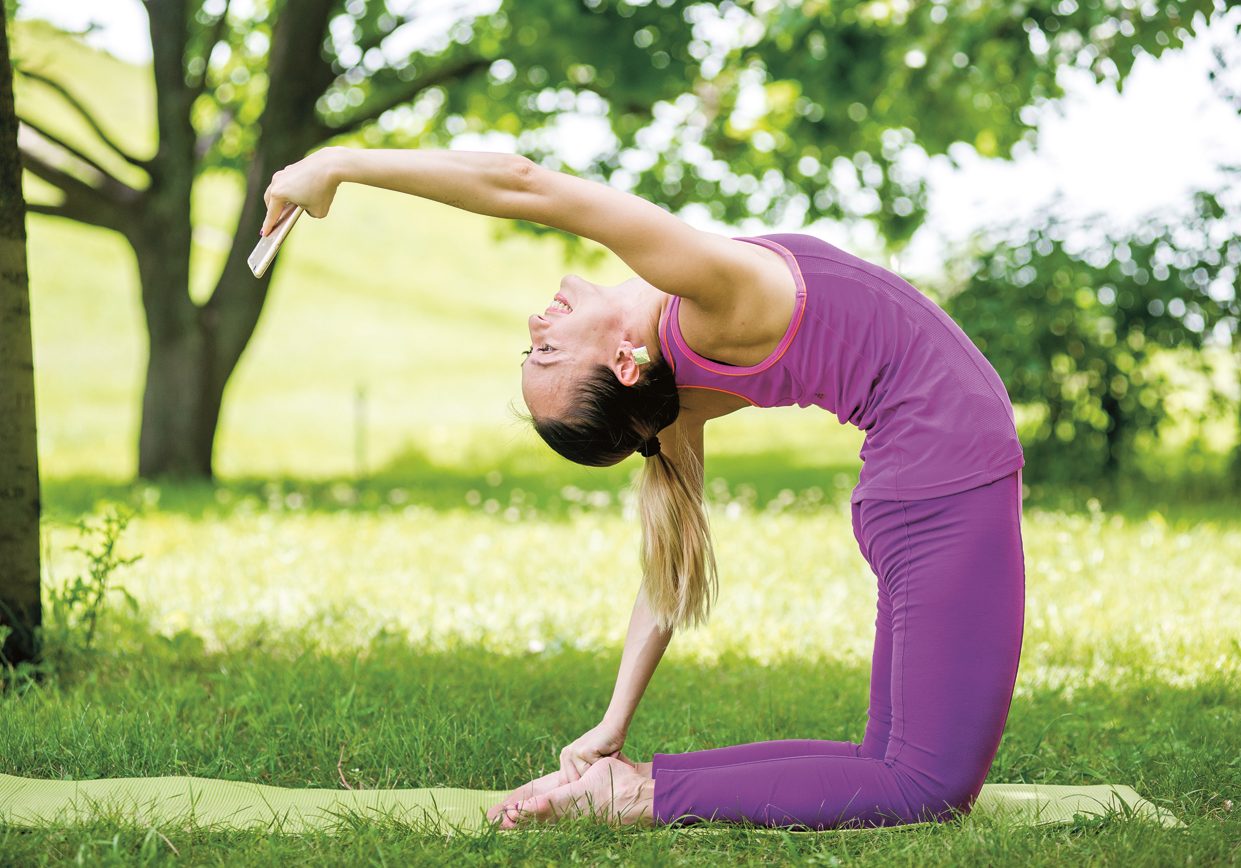
Doing it for the ‘gram
The yoga world has gone Instagram crazy. Molly Gould asks: are you still doing yoga for you…or are you now doing it for the ‘gram?
In an ever more digital world, it’s easy to get caught up in how many ‘likes’ your post gets, how many followers you have…or how the heck that girl you do follow got into Gandha Bherundasana.
So, when does yoga cross the line of doing it for you or doing it for the ‘gram?
Social media is so powerful and can be used to connect us to new friends, as a source of inspiration, and to share amazing ideas. However, with terms such as ‘imposter syndrome’ creeping in, and pressure on numbers and vanity metrics, it can slowly start to become a dark and scary place.
If you haven’t heard of it before, imposter syndrome is the feeling that you’re not capable, qualified, or able to do certain things that you are in fact capable of. Translate this into the yoga world and you may be thinking: “Am I really ready to be a teacher?” Or “Is my Sun Salutation good enough?” While questions like this can be helpful to check in with our own capabilities, when they are loaded with negativity and comparison to others, they can soon become toxic thoughts.
When you start to bind and weave into tricky poses to get more ‘likes’ and validation, then you know you’re doing yoga for the wrong reasons. Maybe then it’s time to take a step back and re-evaluate our purpose on social media channels.
So, how do you navigate this fast-changing digital space and make sure you’re benefiting from your practice, as well as the ‘gram?
Here are a few things you can do to find your happy place:
Tackle
Imposter syndrome is a really common feeling, so first off, don’t feel like you’re in this alone. Acknowledge and sit with these feelings to see where they are stemming from, and if there is anything you can do to change them. Journaling might help with exploring your feelings more deeply or try meditating. Letting those thoughts float to the forefront of your mind and taking a mental note of how they make you feel might help.
Focus
Remember that yoga is for you and no one else. If you can do Headstands, Handstands and Flying Pigeons, that’s cool. If you want to sit in Child’s pose for an hour, that’s cool too. Yoga is a personal practice and social media is a great platform to share it. But it should always be for you, first and foremost.
“Curate your Instagram feed so it’s filled with love, light and compassion, inspiring you to get on the mat or out into nature. You’d be surprised at how much of a difference this makes.”
Celebrate
Let’s cheer each other on instead of putting each other (or ourselves) down. Everyone comes to the mat for a different reason, and we often underestimate the power of a kind word or even a ‘heart eyes’ emoji. Yoga isn’t a competition, it’s a collective. When you make that shift in your mind, you see the world through new eyes. There is not a finite amount of Headstands in the world: we can all succeed at the same time…and what a wonderful place that would be.
Curate
Spend time around those people who make you feel good, inspired and uplifted. That’s what we are told in real life, and it’s the same in our digital lives too. We have this amazing opportunity to connect and converse with so many like-minded individuals; it’s time to harness that power. Curate your Instagram feed so it’s filled with love, light and compassion, inspiring you to get on the mat or out into nature. You’d be surprised at how much of a difference this makes.
Connect
We’ve touched on connection but don’t be afraid to reach out. The Instagram community of yogis is definitely one of the friendlier ones. The girl you’ve been admiring doing the Wheel pose for the last month, drop her a kind comment. The guy who has been working on his Handstand for months, shoot him an encouraging DM. Social media should be just that - social. Get involved in the conversation or start a new one, you never know who you might meet along the way.
Instagram has recently announced a trial of removing ‘likes’ from posts. You’ll know how many people have liked your picture, but others won’t know. The thinking behind this is that it will remove the vanity metrics that peers and brands have become so reliant on. But is this enough? The fact that individuals will still know how many ‘likes’ they have received on a single post means that the pressure is still there.
Imposter syndrome is something that has been around since time began but it has only recently been thrust into the spotlight and highlighted as a very real and raw issue through social media. These steps won’t make it go away, per se, but in order to work towards a healthier relationship with our digital space, we may have to change our relationship with social media and even possibly ourselves.





